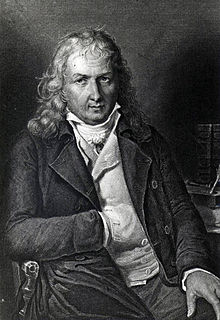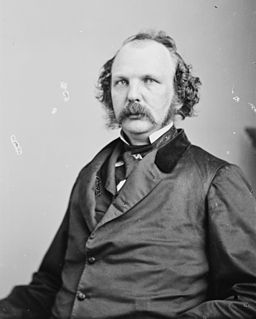A Quote by Lord Byron
Death, so called, is a thing which makes men weep, And yet a third of life is passed in sleep.
Related Quotes
The third class consists of men to whom nothing seems great but reason. If force interests them, it is not in its exertion, but in that it has a reason and a law. For men of the first class, nature is a picture; for men of the second class, it is an opportunity; for men of the third class, it is a cosmos, so admirable, that to penetrate to its ways seems to them the only thing that makes life worth living. These are the men whom we see possessed by a passion to learn.
One-half of life is admitted by us to be passed in sleep, in which, however, it may appear otherwise, we have no perception of truth, and all our feelings are delusions; who knows but the other half of life, in which we think we are awake, is a sleep also, but in some respects different from the other, and from which we wake when we, as we call it, sleep. As a man dreams often that he is dreaming, crowding one dreamy delusion on another.
Death is the door from the superficial life, the so-called life, the trivial. There is a door. If you pass through the door you reach another life - deeper, eternal, without death, deathless. So from so-called life, which is really nothing but dying, one has to pass through the door of death; only then does one achieve a life that is really existential and active - without death in it.
Everyone wants to be foremost in this future-and yet death and the stillness of death are the only things certain and common to all in this future! How strange that this sole thing that is certain and common to all, exercises almost no influence on men, and that they are the furthest from regarding themselves as the brotherhood of death! It makes me happy to see that men do not want to think at all of the idea of death!
And when [Bëor] lay dead, of no wound or grief, but stricken by age, the Eldar saw for the first time the swift waning of the life of Men, and the death of weariness which they knew not in themselves; and they grieved greatly for the loss of their friends. But Bëor at the last had relinquished his life willingly and passed in peace; and the Eldar wondered much at the strange fate of Men, for in all their lore there was no account of it, and its end was hidden from them.
We've looked at sleep diaries of patients with insomnia, and they'll say that they don't sleep for one or two days. And the body actually has a natural function, after about the third day to start catching up and you get a little bit more sleep the third night. And that's usually what I tell my patients.






































